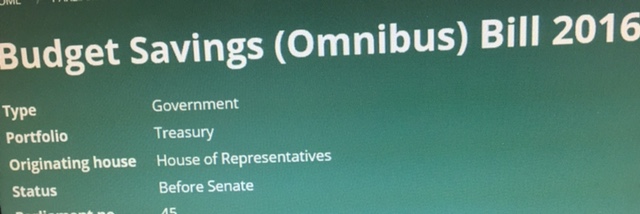articles
NZ insolvency reform – gift cards, director identity numbers, voidable transactions, Ponzi schemes, and more
17/05/2017
New Zealand safe harbour articles Case law
New Zealand does well in its insolvency law reform, partly assisted by not being a federation (no Linc Energy surprises),
APES 110 – accountants, whistleblowers and safe harbour advisers to note
12/05/2017
international NOCLAR AFSA APES 110
Increased professional obligations of accountants, and insolvency practitioners, to refer breaches of the law to the authorities, are being considered at
Gift-cards resurrected
04/05/2017
articles commentary gift cards international
The 2016 “gift-card” report of the UK Law Commission examined whether there should be greater protection for consumers who lose
Mental health and bankruptcy
19/04/2017
articles Case law commentary Insolvency profession
The account of the bankruptcy of Sir Garfield Barwick and the personal impact that it had on him is a
Law reform – a carve-out from directors’ insolvent trading liability, with a change in their culture in return
02/04/2017
articles commentary Law reform safe harbour
The draft ‘safe harbour’ provisions proposed by the government offer directors two advantages in what must be their genuine attempts
ASIC’s industry funding model – draft laws
23/02/2017
AFSA articles ASIC commentary
Drafts of ASIC’s Supervisory Cost Recovery Levy Bill 2017 and related Bills have been released for comment, by 10 March
The Law in the Insolvency “Law” Reform Act 2016
14/02/2017
registration articles Case law commentary
The law has not been given much attention in the recent CLE and professional offerings on the new insolvency laws, with their
Egon Kisch and Albert Piddington
10/02/2017
articles Australian Academy of Law Case law commentary
The name Egon Kisch may not be familiar to many but a recent talk given at an event held by
Insolvency Law Reform Act 2016 – more unpaid work for liquidators?
14/01/2017
articles commentary Law reform no funds
ARITA has reported that the ILRA 2016 imposes a significantly broader range of reporting obligations on liquidators than indicated in
If there is little money in the winding up, the liquidator will have to cut corners he might not otherwise cut
13/01/2017
articles Case law commentary no funds
Insolvency practitioners have the choice to take on a liquidation or a bankruptcy and therefore must accept that there will
ASIC before the Senate – no more scalps, goodness will prevail; complaints in the “thousands”; and the ASIC database
29/10/2016
articles ASIC commentary General
Senate questioning of ASIC does provide some useful information at times. In the inquiry into ASIC’s 2015 annual report by
Insolvency practitioners’ offence reporting
10/10/2016
offences technology AFSA APESB
Although the government is trying to distance any connection between wrongdoing and a company going into liquidation or a person
Review of the big banks
03/10/2016
articles commentary Law reform
The Treasurer has asked the Standing Committee on Economics to inquire into and report on what is termed a Review
The Halcyon Isle resurrected – the law applicable to maritime liens
28/09/2016
articles Case law commentary Halcyon Isle
In a case involving “an important issue for the operation of maritime law in this country” a 5 member bench of
Liquidators riding a remuneration merry-go-round
25/09/2016
articles ASIC commentary remuneration
The commentaries on how the judges assess, or should assess, the remuneration of liquidators is reaching saturation point, one practitioner likening it
Hanjin Shipping – an Australian perspective
19/09/2016
articles Case law commentary Hanjin
The appointment of a receiver to the large South Korean Hanjin Shipping Line has had an impact in Australia, with
Insolvency practitioners’ duties of neutrality
16/09/2016
articles Case law commentary duties of IPs
Liquidators and administrators, and trustees, when their appointments are challenged, have a duty of neutrality, to provide relevant facts to
Another life insurance inquiry – respond by 18 November…..
16/09/2016
APRA articles commentary crisis management
The Parliamentary Joint Committee on Corporations and Financial Services is to report by 30 June 2017 on: the need for
Remuneration of liquidators: Idylic Solutions, Templeton revisited – more of the same?
16/09/2016
articles Case law commentary remuneration
Judges’ inconsistency of approach in determining the remuneration of corporate insolvency practitioners is continuing. The respective state and federal courts
Single touch payroll – on its way into law
15/09/2016
articles commentary Law reform Senate report
The Senate Standing Committee on Economics has given a report on the Budget Savings (Omnibus) Bill 2016 and has endorsed the Bill’s
Consistency in judicial decisions – Marlborough Gold Mines revisited
12/09/2016
articles Case law commentary Law reform
A rather unsatisfactory situation is developing in the nation’s federal and state superior courts in their exercise of shared jurisdiction
Price signalling in corporate restructuring
06/09/2016
articles commentary Competition and Consumer Act Law reform
In its major review of competition law, the government proposes to remove the price signaling provisions in the Competition and
Single touch payroll – disrupting the way things have been done
04/09/2016
ANAO articles Case law commentary
Single-touch payroll (STP) legislation was introduced into federal parliament on 31 August 2016 through the government’s Budget Savings (Omnibus) Bill
Gaps and weaknesses in our system of financial regulation
03/09/2016
APRA articles Case law commentary
The government is yet to respond to weaknesses in our laws that deal with the financial distress or collapse of
Categories
Main Menu

























